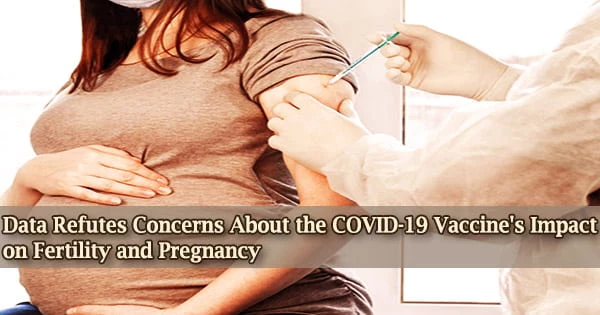New research using mice adds to the growing body of evidence refuting the widely held belief that receiving the COVID-19 vaccine in the first trimester of pregnancy may result in birth abnormalities or issues with fetal growth.
The study refutes assertions that COVID-19 vaccinations decrease fertility by altering the protein syncytin-1. These findings are presented in the open-access journal PLOS Biology by Alice Lu-Culligan of the Yale School of Medicine in the United States and colleagues.
Despite mounting evidence that the COVID-19 vaccination during pregnancy can be advantageous for both mother and child, vaccine hesitation is frequently attributed to safety concerns. Particularly prevalent theories contend that immunization prior to pregnancy may lower female fertility and that immunization during pregnancy may harm the fetus.
Lu-Culligan and colleagues first performed studies on pregnant mice to test those assertions. They discovered that giving a COVID-19 vaccine early in pregnancy had no effect on the fetus’s growth and was not linked to any birth abnormalities.
Additionally, they discovered that fetuses had significant levels of antibodies against the COVID-19 infection, which suggests that the vaccinating effects of the pregnant mice were passed on to the fetuses. These results are in line with the expanding corpus of information on human pregnancy published by the US Centers for Disease Control and other research organizations.
This work provides evidence in a mouse model that vaccination in early pregnancy does not harm fetal growth or development and instead protects the fetus throughout later stages of pregnancy. It also directly challenges misinformation deterring many nonpregnant people from vaccination we show that the antibodies generated by vaccination do not target a rumored placental protein and that these misconceptions around infertility are not supported by the data.
Alice Lu-Culligan
The researchers also gave pregnant mice from different strains an injection of poly(I:C), a chemical that mimics viral infection; the fetuses from these mice grew less slowly. Overall, the mice studies indicate that prenatal vaccination is safer for the mother and fetus than prenatal infection.
The researchers next took blood samples from human volunteers who had received the vaccine and those who hadn’t. They discovered that those who had received the immunization had normal levels of antibodies to the syncytin-1 protein, which suggests that concerns about decreased fertility due to the COVID-19 vaccine’s effects on this protein are unjustified.
The authors state that the collected data will continue to assist in addressing widespread concerns about vaccination as more people are immunized and clinical studies advance. They specifically point out that it will be helpful to check that the COVID-19 immunization is safe during the entire pregnancy.
“This work provides evidence in a mouse model that vaccination in early pregnancy does not harm fetal growth or development and instead protects the fetus throughout later stages of pregnancy,” Lu-Culligan adds.
“It also directly challenges misinformation deterring many nonpregnant people from vaccination we show that the antibodies generated by vaccination do not target a rumored placental protein and that these misconceptions around infertility are not supported by the data.”





